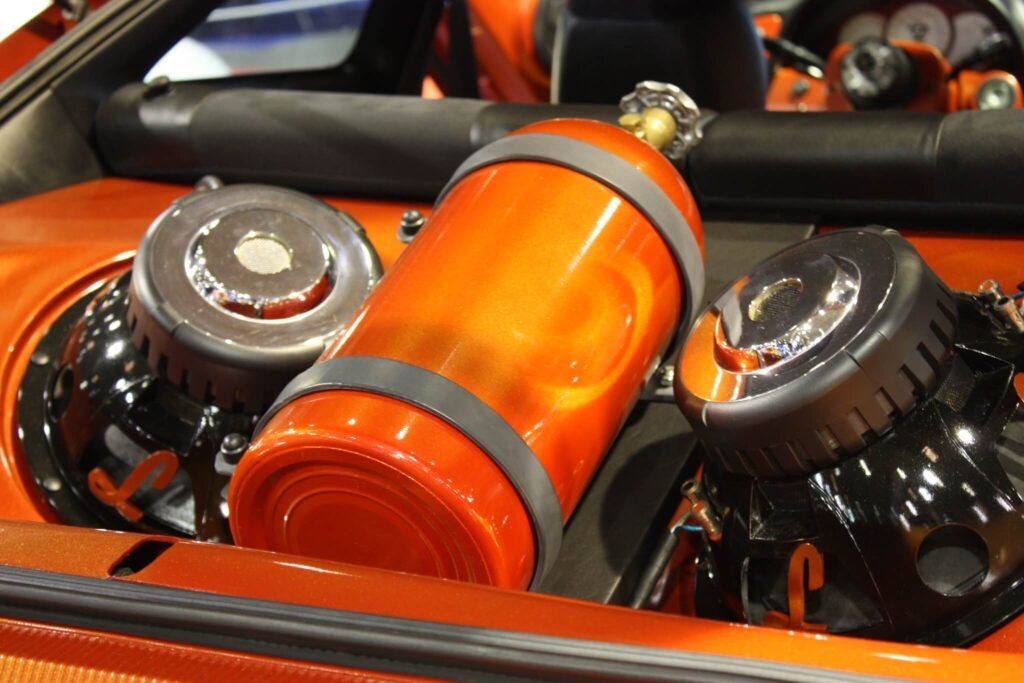Tuning a car involves modifying its performance, appearance, or both. But what does tuning a car actually do? This article explores the various impacts of car tuning, outlining the advantages and disadvantages to help you determine if it’s the right choice for your vehicle.
Source: Mark de Jong / Flickr
Unleashing Performance: Advantages of Car Tuning
Car tuning offers a range of potential benefits, from boosting engine power to enhancing aesthetics.
Enhanced Power and Performance
One of the primary goals of tuning is to increase engine power and overall performance. This is often achieved through chip tuning or ECU remapping, which modifies the engine control unit’s software. By adjusting parameters like fuel injection and ignition timing, tuners can unlock significant horsepower and torque gains, sometimes up to 30%. This translates to faster acceleration, improved throttle response, and a more dynamic driving experience.
Source: Yahya S. / Flickr
Personalized Aesthetics
Tuning allows car owners to personalize their vehicles and make them stand out from the crowd. Modifications can range from subtle changes like adding spoilers or custom wheels to extensive body kits and unique paint jobs. This level of customization enables drivers to express their individual style and create a truly unique vehicle.
Source: D – 15 photography / Flickr
Improved Fuel Efficiency
While often associated with increased power, tuning can also be used to optimize fuel consumption. By fine-tuning engine parameters, it’s possible to achieve better fuel economy without sacrificing performance. This can result in significant cost savings over time, especially for those with long commutes or frequent driving.
Essential for Racing
In the world of motorsports, tuning is crucial for maximizing performance. Race cars undergo extensive modifications to their engines, suspensions, aerodynamics, and weight to gain a competitive edge. Every detail is meticulously tuned to extract the maximum potential from the vehicle.
Source: Phuket @ photographer.net / Flickr
Considering the Risks: Disadvantages of Car Tuning
While tuning offers numerous advantages, it’s important to be aware of the potential drawbacks.
Voided Warranty
Modifying a car’s engine or other critical components can often void the manufacturer’s warranty. This means that any repairs related to the tuning modifications will not be covered, potentially leading to significant expenses.
Increased Engine Wear
Pushing an engine beyond its factory specifications can accelerate wear and tear on its components. Increased stress on internal parts may lead to premature failure and require more frequent maintenance.
Reduced Resale Value
While some modifications may appeal to a niche market, extensive tuning can often decrease a car’s resale value. Potential buyers may be hesitant to purchase a heavily modified vehicle due to concerns about reliability and maintenance costs.
Open hood of a tuned Toyota Corolla Levin, showcasing engine modifications.](https://cdn.sanity.io/images/v2r3zeun/production/df7dcec5882b33637eaf77f6256f05012c1f311a-1600×1066.png)
Souce: Nick / Flickr
Is Tuning Right for You?
Tuning a car can be a rewarding experience, but it’s essential to weigh the pros and cons carefully. Consider your budget, driving needs, and long-term goals before making any modifications. If done correctly, tuning can transform your driving experience. However, poorly executed modifications can lead to costly repairs and headaches. Consulting with a reputable tuning professional is crucial for achieving desired results without compromising reliability.
Source: Mark de Jong / Flickr

